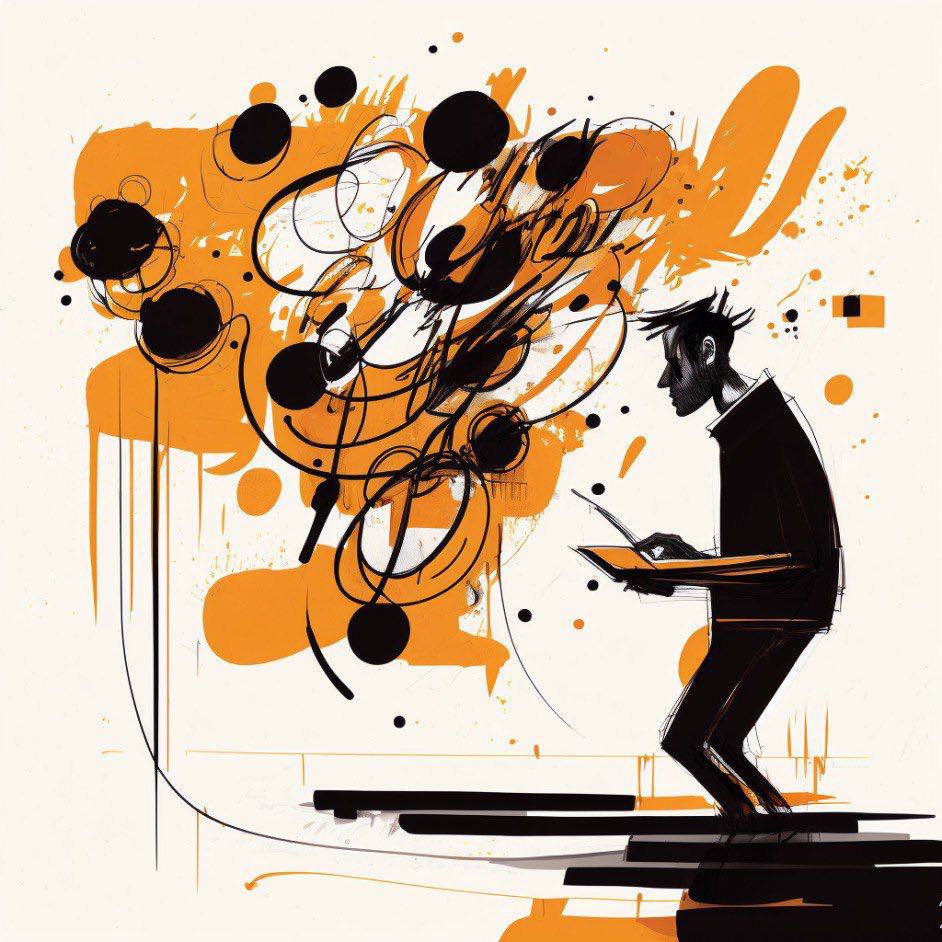EXPERIENCING IT PERSONALLY

The generation aged 50 and above vividly remembers the propaganda of the Soviet Union. We moved forward, they did not. Why are we surprised?
When I see attempts by Ukrainians to convince Russians, I say: "Stop and don't waste your energy!" What ended for us 30 years ago is still ongoing in Russia. I have personally felt what Soviet, and now Russian, propaganda is like.
It's challenging to convey in words the breakdown happening in the minds of people of my generation—those born and raised in the USSR, especially those who served in the Soviet army. We experienced firsthand the depth of ideological indoctrination, the echoes of which we still catch in our heads. Fortunately, we jumped out in time—I was 20 when the Union collapsed.
What about Russia? Now we see a 30-year gap between us, but nothing has changed there. They not only inherited the anthem from the Soviet era but also the "finest" traditions of population manipulation, the results of which Ukraine and the entire civilized world are seeng today.
Thirty years have passed during which we managed to see through, look from all sides, embrace Western values, and get rid of the paranoid thought that enemies surround us. While we evolved, Russians continued to simmer in the same broth. You can blame them for blindness, argue until you're hoarse, and curse. But I recommend finally realizing that, for the most part, they cannot think differently. Not everyone, but in the average mass. To do this, I propose that my peers at 50 and those from 45 to dementia today reflect on 35-40 years ago and remember what was pumped into us from childhood.
Let us be beggars with bare bottoms, but we are great and invincible.
From school, they instilled in us that we are the largest country in the world, 1/6 of the land, with a population of 350 million. We were told we are the most multinational country. They just didn't explain what it gave us. Our family lived in an ordinary nine-story panel building. My parents, high-class professionals, worked 12 hours a day, but we had nothing: no money, no decent clothes, no tasty food. But there was the imaginary greatness of the Motherland, in which we fervently believed. That's such a substitution of concepts.
Our troubles are caused by an external enemy
The main deception was the constant promise that everything would soon be fine. "We'll finish it now, and everything will be fine. We'll build communism - and live like in paradise." The people, like a donkey with a carrot hanging in front of it, went somewhere and expected something. In an endless queue. If something didn't work out, there was always a ready-made reason: the external enemy is to blame. We need to unite and act as a single front. The external enemy is America and all of capitalism. We hated capitalists: after all, we had all the power to the peasants and workers, and capitalists were exploiters whom we destroyed on our territory. Now they threaten us, want to enslave us again. Therefore, we must do everything in the whole country to have even more missiles, bombs, and tanks that will allow us to fend off the oppressors. They should be afraid of us. Interestingly, we never sought to be respected. There was no such thing in the ideology. They should be afraid of us - that's the main goal.
You must serve the idea and constantly prove your dedication to the Motherland
You were born to do some feat for the sake of the country. It's the coolest thing you can do in life. Just working well won't do. A feat is needed, and it's even better if you die. So, from childhood, we were raised to believe that giving your life for the country is not a problem at all; it's a self-evident fact and even an honor. For this, you'll either get a medal or just be told, "Well done." Soviet propaganda didn't envisage anything else. You'll be proud, or others will be proud of you - that's enough.
Thinking about money, about material things while performing a feat was considered a crime. "Are you working here not for the idea?»
You were born, so you already owe. They threw in our faces with free education, housing, healthcare, and recreation. Everything was free, and yet almost everything was disgusting. But we had to be thankful for it and serve in return. "The Motherland gave you education for free, and you haven't justified the trust!"
The cherry on top – you are always guilty. Prove that you are devoted to the Motherland! And then you spend your whole life proving something to someone. From here comes a lot of the attitude toward a person as if they are a beast worth nothing by themselves. What hasn't changed in Russia since Soviet times in this regard is evident from its attitude toward its own soldiers. They are sent to the slaughter like meat. Or shot for refusing to carry out criminal orders. As the "classic" said, "Women will give birth for another ones!"
Don't stand out, be like everyone else.
From school desks: don't stand out, be like everyone else. God forbid you have your own opinion or disagree! Boasting about something was not just indecent but even dangerous. Because the relevant authorities could become interested in your parents.
The collective is everything, individuality is nothing. Why? Collective irresponsibility was fostered this way. You could always steal something, slack off, or blame the collective. But most importantly, it's always easier to control a collective than a group of independent individuals with their own thoughts.
Collectivism led to a corresponding attitude toward property. "Slapdash" is the norm. Why build if it will collapse? Why repair if it will break? Why did this attitude persist in most Russians and change in Ukraine? I think, besides the genetic "kurkul" inclination toward private property and order, independent Ukraine harshly and quickly transitioned to capitalism. In the 90s, we experienced total privatization, and almost nothing remained state-owned. Ukrainians had to learn from scratch how to survive independently. The more difficult it is to obtain property, the more respect for it, the higher its value.
In Russia, a huge number of state-owned companies remained. The entire military, a vast number of structures working for the state, all extractive industries. Much has passed into private hands, but not everything like in Ukraine. In the Soviet Union, no one treated the factory they worked at or the apartment they were given with reverence. Work from bell to bell and steal if possible. In Ukraine, real owners quickly formed, demanding from employees and not holding unnecessary mouths. The process of capitalization, acceptance, and understanding of private property in Ukraine has been fast and qualitative. Little has changed for the average Russian.
I left my house in Chernihiv twice. First, after spending a week in the basement during the bombing of Chernihiv. Then I returned for a few days only to leave again. Before leaving, I made sure everything in the house was in perfect order. Why? Every Ukrainian understands me, but not every Russian.
Ukrainians and Russians are one people, only Ukrainians are slightly worse and lower. And the Ukrainian language is considered rustic. In the Soviet Union, in this imperial system, disdain for the common people, villages, peripheries, was elevated to a cult. People worked hard to move to the city and not be considered part of the village. Of course, urban dwellers differ from rural dwellers everywhere in the world. But nowhere in the world is there such contempt for rural residents as it was in the Soviet Union, and now in Russia. All propaganda was built on the idea that Ukrainians are some kind of village, periphery, subhumans. Speaking Ukrainian was considered shameful, indecent. And many really believed in it. The Russian language was considered grand, Ukrainian - rustic. Russians are grand, Ukrainians are catching up. What exactly makes them grand and why their language is better remained a mystery. But the issue was not pursued. Moscow, St. Petersburg are indeed beautiful, magnificent. But I can't recall propaganda praising Irkutsk, Kalmy, or Voronezh.
It must be acknowledged: even we haven't fully grasped the depth of the gap between our nations. Not to mention the rest of the world, which perceived us as an underdeveloped or immature entity. The war, with all its cruelty and horrors, crystallized our subjectivity and national idea. We are not only recognized worldwide, but also respected. Especially by those nations that defended themselves with blood, repelled attacks, and know the value of freedom. In Russia, their primitive authority has always been imposed by force and terror. They know nothing about freedom or its value. But they certainly know how others should live and what is "good" for them.
"And who allowed you to live well?" - a photo of this inscription left by Russian occupiers on the wall of a building they destroyed circulated on social media. It is an eloquent and concise expression of the worldview of the population of the neighboring country. A carefully formed and ingrained perspective in the minds of hundreds of millions.
